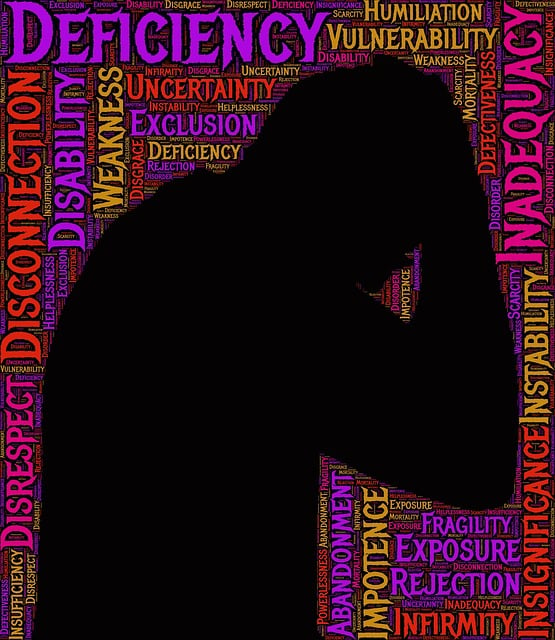Louisville Young Adults Therapy (LYAT) faces unique challenges due to the city's dynamic nature, including high demand, diverse client needs, and limited resources, leading to potential burnout and stress for therapists. To mitigate risks, LYAT emphasizes self-care, emotional intelligence development, and clear work-life boundaries. A comprehensive risk management plan addresses complex mental health issues through training in emotional intelligence, stress management techniques, and regular mental health education. Proactive strategies consider cultural sensitivity, identity crises, substance abuse, and family conflicts, while public awareness campaigns destigmatize mental health. LYAT employs personalized interventions based on continuous client assessment, leveraging evidence-based practices for optimal care and resilience.
In the dynamic field of mental health care, especially within Louisville’s unique context, effective risk management planning is paramount. This article explores the critical components for safeguarding mental health professionals and their clients, with a specific focus on Louisville Young Adults Therapy. We delve into understanding distinct risk factors, developing tailored strategies, identifying clinical hazards, implementing mitigation tactics, and emphasizing continuous monitoring—all essential elements for ensuring the well-being of both practitioners and young adult patients in this vibrant city.
- Understanding Mental Health Professional's Unique Risk Factors in Louisville
- Developing a Comprehensive Risk Management Plan for Young Adult Therapy
- Identifying Potential Hazards and Vulnerabilities in Clinical Settings
- Implementing Strategies to Mitigate Risks in Louisville's Young Adults Therapy
- Continuous Monitoring, Evaluation, and Adaptation for Effective Risk Management
Understanding Mental Health Professional's Unique Risk Factors in Louisville

Mental health professionals in Louisville face unique challenges and risk factors due to the city’s dynamic environment. The high demand for Louisville young adults therapy services, coupled with a fast-paced urban lifestyle, can lead to burnout and stress among practitioners. Many professionals juggle heavy caseloads, diverse client needs, and often limited resources, creating a complex web of potential risks to their own mental health and well-being.
Navigating these pressures is crucial for maintaining a healthy practice and fostering effective therapy sessions. Professionals in Louisville can mitigate risks by prioritizing self-care routine development for better mental health. Implementing emotional intelligence and promoting emotional well-being promotion techniques are game-changers. Through mindfulness, regular self-reflection, and setting clear boundaries between work and personal life, therapists can sustain their resilience and provide optimal care to their clients.
Developing a Comprehensive Risk Management Plan for Young Adult Therapy

Developing a comprehensive risk management plan is an essential aspect of practicing Louisville Young Adults Therapy. This involves a multi-faceted approach to ensure the safety and well-being of both therapists and their clients, particularly when addressing complex mental health issues prevalent among young adults. Such a plan should be meticulously tailored to navigate the unique challenges presented by this demographic, encompassing factors like social media influence, academic pressures, and identity formation.
A robust strategy can incorporate various components, such as implementing Emotional Intelligence training for therapists to enhance their ability to recognize and manage their emotions during therapy sessions. Additionally, integrating Stress Management techniques into the therapeutic framework helps clients develop coping mechanisms. Equally important is providing regular Mental Health Education Programs Design, enabling professionals to stay updated on emerging trends and best practices in youth mental health care.
Identifying Potential Hazards and Vulnerabilities in Clinical Settings

In clinical settings, particularly at Louisville Young Adults Therapy, identifying potential hazards and vulnerabilities is a crucial step in risk management planning. Mental health professionals interact with individuals from diverse backgrounds, each bringing their unique experiences and challenges. This dynamic environment introduces various risks, including emotional trauma, cultural misunderstandings, and the potential for professional burnout. For instance, therapists working with young adults may encounter clients dealing with complex issues such as identity crises, substance abuse, or family conflicts. These situations demand a high level of empathy building strategies to foster trust and open communication.
Furthermore, cultural sensitivity in mental healthcare practice is paramount. Louisville Young Adults Therapy serves a diverse community, emphasizing the need for practitioners to be aware of and respect cultural differences. Misunderstandings can arise from variations in communication styles, values, and beliefs about health and illness. Effective risk management requires therapists to be vigilant in navigating these complexities, ensuring that every client receives culturally sensitive care tailored to their specific needs. By addressing potential hazards proactively, the therapy center can promote a safe and supportive environment, ultimately enhancing mental wellness for all young adults served.
Implementing Strategies to Mitigate Risks in Louisville's Young Adults Therapy

In Louisville, the focus on managing risks in young adults’ therapy is crucial to ensure a safe and supportive environment for vulnerable clients. Implementing strategies tailored to this demographic involves addressing unique challenges they face, such as academic pressures, social media influence, and mental health stigma. One effective approach is through public awareness campaigns that destigmatize mental health issues, encouraging open conversations and fostering community support for young adults seeking therapy in Louisville.
Additionally, integrating mindfulness meditation and empathy-building strategies into treatment plans can significantly mitigate risks. Mindfulness practices help young adults develop emotional regulation skills, enabling them to cope with stress and anxiety effectively. Empathy-building strategies foster deeper client-therapist relationships, enhancing trust and encouraging honest communication. These methods not only support mental well-being but also empower Louisville’s young adults to navigate therapeutic journeys with increased resilience and self-awareness.
Continuous Monitoring, Evaluation, and Adaptation for Effective Risk Management

Effective risk management planning for mental health professionals involves a dynamic process of continuous monitoring and evaluation. At Louisville Young Adults Therapy, we understand that every client is unique, with their own set of challenges and strengths. Therefore, our approach to risk assessment is not one-size-fits-all. Regularly reviewing and adapting risk management strategies ensures that interventions are tailored to the evolving needs of each individual. This proactive methodology allows us to implement evidence-based practices like Stress Reduction Methods and Empathy Building Strategies from our Mental Wellness Podcast Series Production, fostering a safe and supportive environment for recovery.
Through ongoing assessment, we can promptly identify emerging risks or changes in client presentations. By staying agile and responsive, our team is better equipped to navigate complex situations, mitigate potential hazards, and promote positive mental wellness outcomes. This continuous cycle of monitoring, evaluation, and adaptation not only enhances the quality of care but also builds resilience among our clients, empowering them to manage their mental health effectively.
Effective risk management planning is essential for mental health professionals to ensure the safety and well-being of their clients, particularly within the unique context of Louisville’s young adults therapy. By understanding specific risk factors, developing tailored strategies, and continuously monitoring practices, therapists can create a secure environment. Implementing these measures ensures that Louisville’s young adults receive high-quality care while mitigating potential hazards. This comprehensive approach to risk management is vital for fostering resilience in clients and enhancing the overall success of therapeutic interventions in this demographic.














